Music copyright coup? All melodies for free!
A music copyright revolution: A duo calculates and records every possible melody combo
Wait, what? Every melody ever possible has been calculated, copyrighted and then given away for free? Surely that isn’t possible? Incredible though it may seem, two musicians have done exactly that. Does this mean an end to copyright lawsuits along with outrageous court costs? Is this a music copyright revolution? Read on and judge for yourself…
Every melody, ever, calculated and copyrighted
Two musicians have set out to drastically reduce lawsuits which, they believe, threaten the creative future of musicians. It’s our understanding that Damien Riel and Noah Rubin created a very special algorithm: it calculates and records every possible 8 note 12 beat melody combo and works at a rate of 300,000 melodies per second! A revolution for music copyright?
So why would you go to such extraordinary efforts to construct every possible melody in such a calculated fashion? What possible creative purpose can that endeavour serve us, as musicians? Well, if you’ve ever had your music published, the intellectual property of your music will be covered by music copyright law…
Law and order
A number of recent high profile court cases have seen songwriters stripped of royalties, due to lawyers successfully arguing “similarities” in melodies. Damien Riel is not only a musician and programmer but also a music copyright attorney. Riel and Rubin hatched a clever scheme, they hope, to prevent a large number of these cases ever going to court. The aim is to prevent accidental infringement, where someone came up with a melody similar to an existing one they hadn’t heard.
The pair have not only calculated every melody but subsequently published the MIDI files of those melodies in the public domain. Their theory is to prevent ownership claims of published melodies where someone has accidentally infringed music copyrights. You’d need to consult a lawyer as to the legality of their claims, however.
Is this a revolution in music copyright law? Will this stop retrospective copyright claims in their tracks? As of yet, it’s difficult to know if their efforts will hold up in court. Watch this space!
Damien Riehl’s TEDx Talk about his coup for music copyright
13 responses to “Music copyright coup? All melodies for free!”
 4,0 / 5,0 |
4,0 / 5,0 | 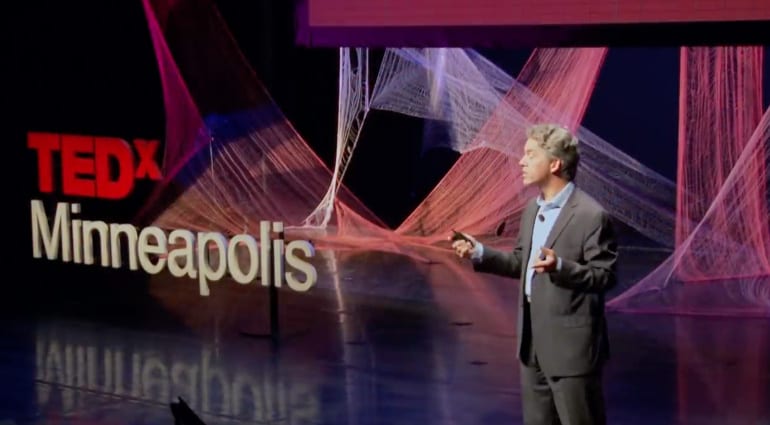

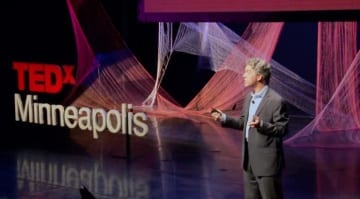

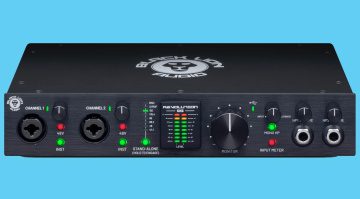
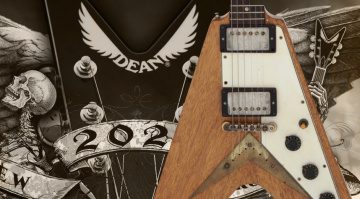
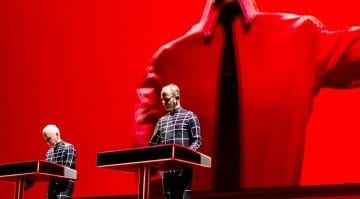
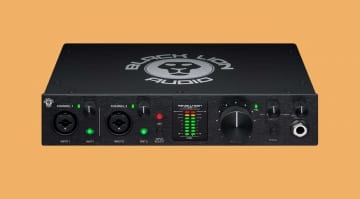
i love these guys and this initiative. the todd decker/ katy perry lawsuit was a terrible joke and slap in the face to musicians.
As an IP attorney, I can tell you that this is just a publicity stunt (however well-intentioned) and will never hold up in court. The YouTube channel Lawful Masses did a good job explaining why in more detail. “Calculating” and having AI develop melodies is not copyrightable. Just like the monkey who stole the camera can’t have a copyright in the pictures it took because it wasn’t human, AI can’t gain a copyright in melodies it programs. Plus, a requirement of copyright law is to prove “access.” How can you prove someone downloaded and read/listened to the specific melody within the database?
I understand the need for modernization to occur in copyright law, but this exercise is just click-baity self-promotional BS.
How is proving someone accessed the database and found the melody different from proving that someone heard the melody “somewhere” and then copied it. Actually if the collection of generated melodies has a search facility – anyone that made a melody could have the search engine find it in the database before publishing the melody – and when publishing the melody they could refer to the melody in the database. To be safe they would have to use some sort of anonymous access when they did the first search but that should be possible.
Curious, but would the concept of AI not gaining copyright because it isn’t human have trouble with the fact that humans directed it to create the melodies (and humans subsequently directed the product to be copyrighted)? If not, how does that apply to any work with a stochastic or aleatoric element? Does John Cage not hold copyright because he allowed random elements into his compositions, or Xenakis, or anyone who used a computer program that generated musical elements?
Would the output of a random arpeggiator used in a pop piece as the hook be uncopyrightable?
I don’t understand… how would these melodies supersede other melodies already copyrighted? Yes, I guess this would be fine for melodies as yet uncomposed, but that’s not what is being litigated.
I don’t think this would affect any disputes already in litigation, but I think the authors hope that it will affect future ones.
But, consider this then. If ALL melodies are copyright free other than ones currently copyrighted, YOUR new composition cannot be copyrighted either. Kiss goodbye to any protection whatsoever..!
This has the stink of someone who never wrote a successful tune in their life all over it. And the applause of those in a similar situation. It’s easy to applaud freedom until you have something to protect.
the numbers are bogus. there is a much higher number of possible melodies, when you take pauses, shorter and longer notes and accents into account. also calculated melodies have not the required creation level, which is necessary, at least for copyright laws in germany. So its a nice PR trick but nothing that will stand on court.
I am also guessing that it won’t hold in court, on the other hand I would call it a PR trick, but a way of causing debate that will hopefully lead to a better way of handling these issues.
Apart from that, they have also only created “melodies” from notes on a 12-note pr. octave scale (if I remember correctly – I saw the video some time ago) if you allow any number of notes/octave the number of combinations is not finite. On the other hand, people working with 19/51/120 notes/octave are probably not going to have an audience big enough to make a lawsuite worth the time and money…
It says they generate 300,000 melodies per second, so what numbers are bogus? Still a PR trick yes 🙂
OMFG yes… it’s stupid at so many levels. Not only it doesn’t make sense because it’s automatically generated… but they rely on a complete misunderstanding of copyright disputes from the general public (I hope they aren’t *that* ignorant themselves)
Because it is VERY easy to link any famous song to a royalty free melody from the past… and if it was such a trump card, these lawsuits wouldn’t exist…
It will be forgotten next month…
I’m willing to bet my left gonad that it won’t be used in any court case ever (or maybe once, by them… and they will lose and sweep it under the rug).
Is Gearnews running out of legitimate topics? Rehashing idiocy from 2020 doesn’t make it and less idiotic.
Fool me once, shame on me. Fool me twice, shame on Gearnews!
You are currently viewing a placeholder content from Facebook. To access the actual content, click the button below. Please note that doing so will share data with third-party providers.
More InformationYou are currently viewing a placeholder content from Instagram. To access the actual content, click the button below. Please note that doing so will share data with third-party providers.
More InformationYou are currently viewing a placeholder content from X. To access the actual content, click the button below. Please note that doing so will share data with third-party providers.
More Information